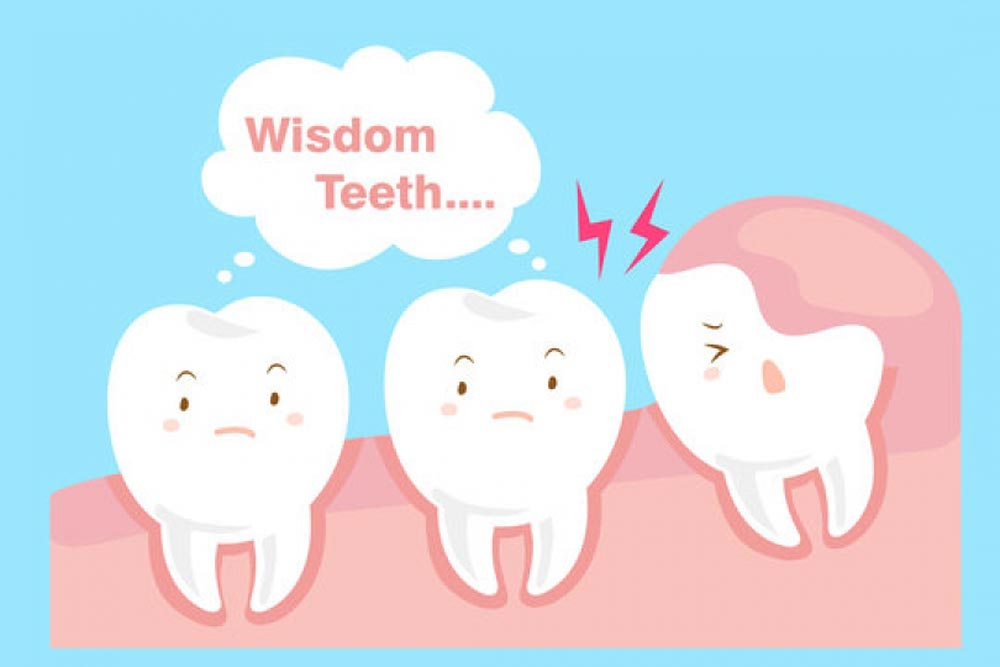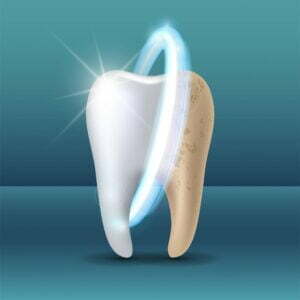How to sleep after wisdom teeth removal is the most frequently asked question by people suffering from this severe procedure who have experienced tooth wisdom pain.
It is a reality that about 85% of people in America usually have to remove their tooth wisdom, and for this, they pass through hard processes. The remaining 15% are considered lucky ones.
In this article, we will help you reduce wisdom teeth pain so that you may sleep comfortably without further problems.
What Is Wisdom Tooth?
Blog Contents
- What Is Wisdom Tooth?
- How To Sleep After Wisdom Teeth Removal?
- Proper Medication
- Keep Your Head In Position
- Remove Gauze From the Mouth
- Jaw’s Massage
- Rinse Mouth With Salt Water
- Some Other Instructions
- Call Your Doctor In Case Of No Healing
- Conclusion
- Frequently Asked Questions
- Is saltwater useful for healing the wound of teeth removal?
These are the last of your teeth to erupt in the mouth. It may pop up at any age, but sometimes this tooth becomes stuck due to the small surface below the gums and grows in odd places.
It causes a lot of complications and results in severe pain. Due to this, dentists recommend patients remove them. Although the dentist still tries to do the tooth extraction process smoothly, it is painful.
The pain of tooth extraction will not remain more than two to three days, but if you do not extract wisdom teeth, you will be in constant pain and unable to eat or drink anything.

How To Sleep After Wisdom Teeth Removal?
When wisdom teeth extraction takes place, it leads to mild pain, soreness, tenderness, temporary numbness, and tiredness. Moreover, during this procedure, the patient is medicated heavily or remains under anesthesia for a long.
Due to high doses of medicines, there is a need for sleep after surgery, but some people feel problems sleeping due to pain or bleeding. It is wrong to say that you can’t sleep through tooth bleeding, but it is better to take an old pillow as surely you will not want to have a strain on your favorite pillow.
Some precautions will help you to have a sound sleep in severe pain; these tips will also help your surgery in fast heal.
Proper Medication
It is necessary to take proper medication as the doctor prescribes from the very start. It will help you sleep at night without pain and also boost your immunity to fight off potential infection.
In such cases, oral surgeons or dentists usually recommend high-potency medicine for relief. Besides, applying an ice bag to the swollen part is better to reduce pain and swelling.
Keep Your Head In Position
After your wisdom teeth extraction, it is necessary to keep your head elevated for at least 36 hours at a 45-degree angle all day, even during sleep.
This elevation will prevent bleeding and help your wound heal quickly as blood vessel tone (constriction of your blood vessels) and blood volume will increase when you lie flat.
Due to this, the wound doesn’t heal, and increased blood pressure will lead to more bleeding instead of inhibiting. Keeping your head upward will also reduce swelling and make you feel relaxed.
Remove Gauze From the Mouth
Although you will still remember this step, I remind you to remove gauze from your mouth before sleep. Please keep it in your mouth until the doctor recommends 30 minutes so you don’t accidentally choke on it.
Jaw’s Massage
After the removal of teeth, wisdom usually lockjaw occurs, which is its biggest side effect. This condition leads to pain, headache, sourness, cramping, and pain. So to reduce pain, massage your jaw to stimulate the flow of blood, which will also help in fast recovery.
Rinse Mouth With Salt Water
The most renowned process recommended by oral surgeons and dentists is to rinse your mouth with salt water, as it will reduce pain and swelling also.
One of the best ways to clean your mouth after surgery and minimize swelling and pain is to rinse your mouth with saltwater.
You can rinse your mouth after one tooth removal. Using salt water 6 to 8 times from the second day is good. It will also aid in recovery.
Some Other Instructions
After wisdom teeth removal, change your sleeping schedule and sleep whenever you feel tired, as all this is due to weakness and anesthesia. Do a little work and take proper rest.
Try to sleep in a calm place, turn off the light, and even lay down your mobile phone. Keep the temperature lower to decrease the temperature of your body.
Moreover, avoid brushing your teeth after the removal of wisdom teeth. Use mouthwash constantly for 3-4 days till the wound heals.
Call Your Doctor In Case Of No Healing
If you see constant bleeding from your teeth or feel anything exceptional, immediately call your doctor and tell him your problem. He will change prescriptions or will recommend something better to you.
Furthermore, if you see symptoms like:
- Trouble swallowing
- Difficulty breathing
- Pus in or around the socket
- Excessive bleeding
- Severe pain
- Fever
- Prolonged, excessive swelling that lasts two or more days
- Pus in or around the socket
- Numbness or loss of feeling
- Blood or pus in nasal discharge, then must go for a checkup again.
Conclusion
Removal of wisdom teeth is painful, but you can reduce that by applying tips such as warm salt water, mouthwash, recommended medicines, and trying to sleep in dark or dim light. It is better to use ice packs on swollen parts to reduce pain.

Frequently Asked Questions
What are the symptoms of infection after wisdom teeth removal?
Fever, excess bleeding, severe pain, and pus in the gums are some symptoms of infection after wisdom teeth removal.
Is saltwater useful for healing the wound of teeth removal?
Yes, it is very helpful in reducing swelling and pain. Moreover, it helps in the faster healing of wounds.







